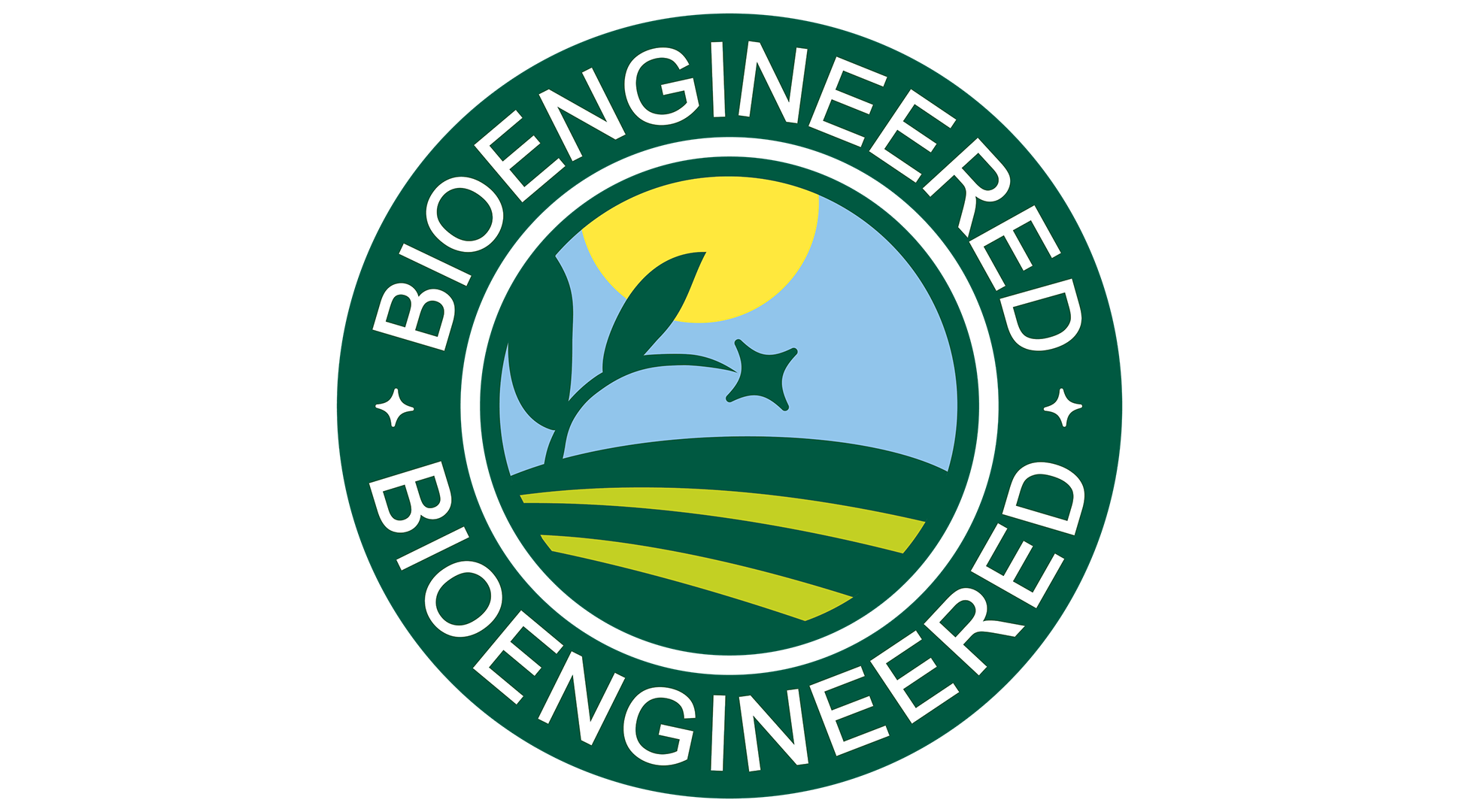Check out this Q&A from USDA's Agriculture Marketing Service.
Q: What is the National Bioengineered Food Disclosure Standard?
The National Bioengineered Food Disclosure Standard (NBFDS or Standard) requires food manufacturers, importers, and certain retailers to disclose information about whether food offered for retail sale is bioengineered (BE) or uses BE food ingredients. The Standard is designed to provide consumers more information about their food.
The Standard defines bioengineered foods as those that contain detectable genetic material that has been modified through in vitro recombinant deoxyribonucleic acid (rDNA) techniques and for which the modification could not otherwise be obtained through conventional breeding or found in nature.
Q: Who must comply with the disclosure requirements of the Standard? What is a regulated entity?
Regulated entities must comply with the Standard. The Standard defines regulated entities as food manufacturers, importers, and certain retailers who label food for retail sale.
The law does not apply to restaurants and similar retail food establishments (e.g. cafeterias, food trucks, airplanes, etc.) or very small food manufacturers, which are food manufacturers with annual receipts of less than $2,500,000.
The law does include dietary supplements in the definition of food covered under the standard, so manufacturers and importers of dietary supplements must comply with the disclosure requirements of the Standard.
Q: What products must comply with the NBFDS disclosure requirements?
Bioengineered foods or foods that contain bioengineered food ingredients must be labeled with the bioengineered food disclosure.
The Standard defines bioengineered foods as those that contain detectable genetic material that has been modified through in vitro recombinant deoxyribonucleic acid (rDNA) techniques and for which the modification could not otherwise be obtained through conventional breeding or found in nature.
Highly refined foods or ingredients that do not contain detectable modified genetic material are not bioengineered foods.
Q. What is the List of Bioengineered Foods?
The List of Bioengineered Foods identifies bioengineered foods that are authorized for commercial production (by the country in which it is produced) and in legal production somewhere in the world. The List tells regulated entities which foods they must keep records for and which foods may require BE disclosures.
The List includes: alfalfa, apple (ArcticTM varieties), canola, corn, cotton, eggplant (BARI Bt Begun varieties), papaya (ringspot virus-resistant varieties), pineapple (pink fleshed varieties), potato, salmon (AquAdvantage®), soybean, summer squash and sugarbeet.
When only one company produces a bioengineered food, such as ArcticTM Apples or AquAdvantage® salmon, AMS will include the trade name on the List to simplify compliance for regulated entities.
Regulated entities whose records show that a food they are selling or using is bioengineered must make appropriate disclosure of that food, even if that food is not on the List.
Additional information about the crops and foods on the List is available on the AMS website. The information will be maintained and updated.
The online information will include details about specific varieties of crops and foods that have been bioengineered, to help regulated entities more easily identify foods for which disclosure may be necessary.
Q. How will the List be updated?
USDA will update the List when necessary to reflect the current availability of bioengineered foods.
Before updating the List, USDA will coordinate with other Federal regulatory agencies who regulate biotechnology.
USDA will conduct annual reviews of the List and, as necessary, conduct rulemaking to amend the List.
Public input into the List’s composition is invited on an ongoing basis.
The Standard also outlines a rulemaking process to help determine whether there are certain “factors and conditions” that may exclude certain foods from being considered a bioengineered food.
Q. How can I tell if my food has detectable modified genetic material?
The Standard identifies three different ways that a regulated entity can determine that modified genetic material is not detectable: (1) by using records to verify that a food is sourced from a non-bioengineered crop, (2) by using records to verify that a food has been subjected to a refinement process that has been validated to render modified genetic material undetectable, or (3) by maintaining certificates of analysis or other testing records appropriate to a specific food that confirm the absence of detectable modified genetic material.
Q. Will the Standard have an impact on foreign trade?
The Standard is not intended to, or expected to, disrupt trade. The Standard places the same requirements on domestic and foreign entities.
During the rulemaking process, USDA sought comment from all stakeholders regarding any unique issues associated with bioengineered food disclosure for imports.
The proposed rule was notified to the World Trade Organization and open for comments from our trading partners.
USDA’s Foreign Agricultural Service is prepared to work closely with countries who import food into the United States to help them understand the requirements of the Standard.
For more information, visit USDA FAQ BE Label page.
